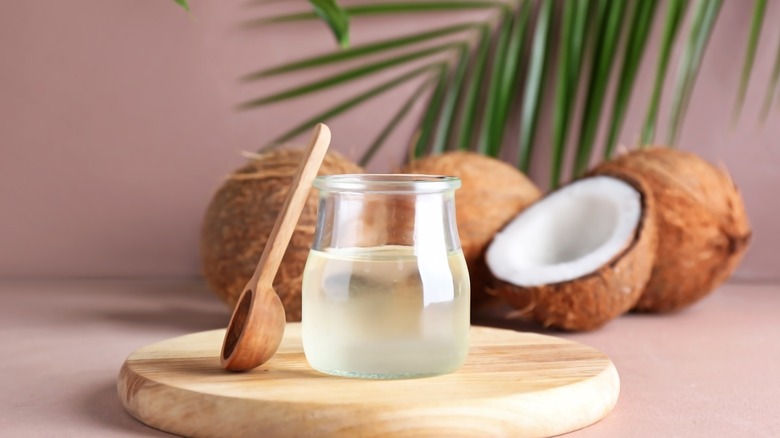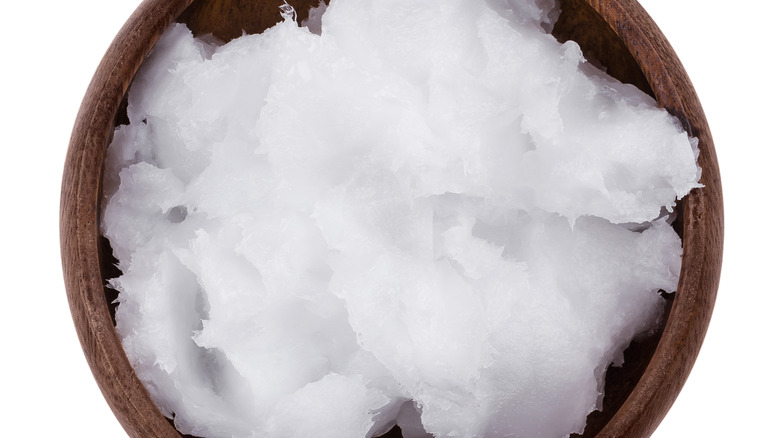Make Your Own Coconut Oil With 2 Simple Ingredients
Coconut oil is one of the most expensive oils on grocery store shelves, with a wealth of health and taste benefits to back it up. However, unlike the high-tech and often complex processes of extracting and refining other vegetable and seed oils, coconut oil extraction is a hands-off, simple process that you can easily achieve at home.
Similar to the process of making buttermilk or yogurt, all it takes to make your own coconut oil is coconut milk and lemon juice. Furthermore, you can use fresh coconut meat, canned coconut milk, or even dried coconut flakes for even more convenience. Just ensure that processed or dried coconut products contain no other additives.
To make coconut oil, you want to isolate the fat from coconut milk's water content. Lemon juice causes the coconut milk to curdle the same way that adding a spoonful of vinegar causes milk to transform into buttermilk.
All you have to do is squeeze lemon juice into coconut milk, and within half an hour, the milk will begin curdling, effectively separating the fat from the liquid by solidifying it into curds. Another overnight stint in the fridge or a cold dark space will yield a thick cap of coconut butter. If you wait another few days for the oil to separate from the solid cap of curds or butter, you'll have a purer unrefined liquid oil.
Coconut milk and coconut oil methods of production
Since coconut milk is your starting point, you can either buy canned coconut milk or make it from scratch. You don't want to use a carton of coconut milk that has been filtered to reduce its fat content. Full-fat canned coconut milk is the easiest, albeit more expensive, starting point for coconut oil.
If you want to make coconut milk from scratch, you can rehydrate coconut flakes in boiling water or use fresh coconut meat. Whichever method you choose, you'll need to blend the coconut meat, then strain the meat and liquid through a cheesecloth.
Many recipes for coconut butter and oil use only coconut milk. However, these recipes call for heating or boiling the coconut milk or cream before letting it sit or "ferment." However, leaving the coconut milk and lemon juice mixture in a cool or cold environment is an easier, more hands-off method with the same results. In fact, coconut oil derived from milk at room or below boiling temperatures is called "cold pressing." Cold-pressed, unrefined coconut oil has a richer coconut flavor. Furthermore, since the extraction process lacks boiling of the milk, cold-pressed coconut oil retains all of the fresh coconut's wealth of nutrients. Coconut oil will make a delicious, all-natural addition to sweet and savory dishes as well as a wonderful skin and hair moisturizer.

